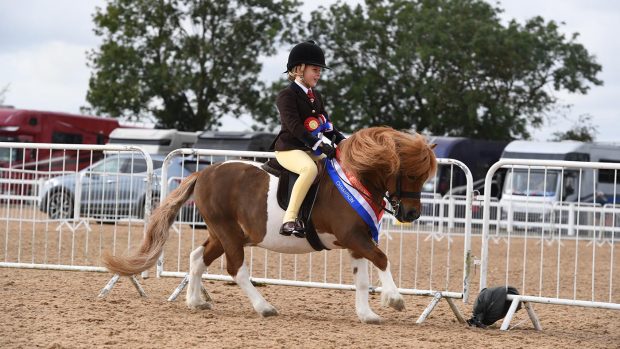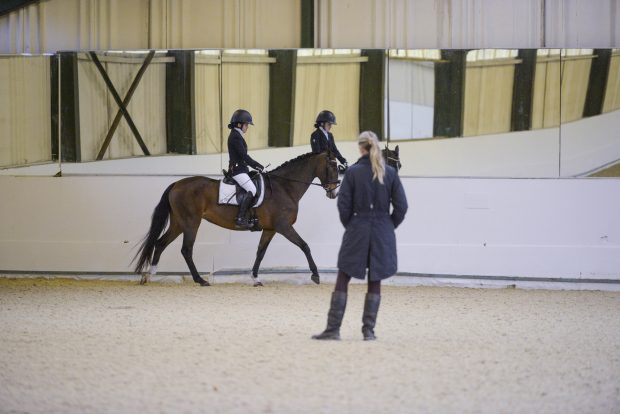View horses for sale
More legal advice on buying horses
Find horse dealers near you
Q: I bought a horse from a horse dealer in June. It was advertised as: dark bay Irish Draught, 7 years old, had done show jumping & hunting in Ireland, good for hacking out in the heaviest traffic.
When I arrived to see the horse catching it proved difficult and once caught it appeared timid and thin. The horse dealer tacked the horse up and a young girl rode it. The horse dealer assured me that the horse was sound and said that if there were any problems he would give me my money back, so I bought it.
When I collected the horse I asked for its passport. The horse dealer said he had forgotten it and would post it to me the next day. It never arrived despite repeated requests.
Once I got the horse home it became clear that something was wrong as he became very upset every time I put his saddle on. I rang the horse dealer who told me that the horse just needed exercising and to carry on and give him a ring if he continued to do it. I continued for a week, until the horse bucked me off and injured me. I rang the horse dealer straight away and he said that he would take the horse back.
A week passed and I hadn’t heard from him, so I rang again and he said he would come the next day, but he didn’t turn up. When I tried to ring him he either didn’t answer his phone or put it down. I tried text messages, but got no reply. Not knowing what to do next I rang consumer direct, who said I could not do anything without the horse dealer’s address.
I am at my wits end. I don’t know where to turn as I can’t afford to buy a horse that isn’t fit to be ridden.
A: You are in a much stronger position legally having bought the horse from a horse dealer rather than from a private seller. This is because when a horse dealer sells a horse, it must be of satisfactory quality and fit for purpose. If it is not, the horse dealer will be in breach of contract and the buyer will in most circumstances be entitled to return the horse for a full refund, and claim damages for any other costs which they have incurred as a result of the purchase.
Your description of the horse as not accepting the saddle and bucking when ridden means that it is clearly not of satisfactory quality and fit for the purpose for which it was sold, namely a riding horse. You therefore have a good prima facie case against the horse dealer under the sale of goods legislation. However, your case would be weakened if the horse dealer either specifically drew your attention to the back problems before the sale, or if the back problems were apparent when you viewed the horse.
You have further rights against the horse dealer as a result of his promise to refund your money in the event of any problems. There can be no doubt that the horse’s behaviour you have described constitutes a problem of sufficient severity for you to ask him to fulfil that promise by refunding your money. The fact that the horse dealer said he would come to collect the horse when you first spoke to him shows that he accepts this.
Next steps
You say that you do not have the horse dealer’s address. You may not have his residential address, but was the yard where you viewed the horse the horse dealer’s business premises i.e. where he buys and sells horses? If so, the address of that yard is all you need to take the matter further.
As you have tried to contact the horse dealer by telephone and text message on numerous occasions without success, the next step is to write a “Letter of Claim” to the horse dealer. This is a formal letter to the horse dealer setting out your claim against him, written as a forerunner to taking court action. This letter, which should be headed “Letter of Claim”, should cover the following points:
(i) full details of the history of the sale: what the advert said, the date of sale, price paid, what the horse dealer told you about the horse, including his promise to refund your money;
(ii) what happened after the sale: describe the horse’s back problems in as much detail as you can. If you have had a vet or osteopath assess the problem, explain this, and what they concluded;
(iii) state that, in light of the problem, the horse is not of satisfactory quality nor fit for purpose and that the horse dealer is therefore in breach of the sale of goods legislation;
(iv) state that he is also obliged to refund your money in accordance with the promise which he gave at the time of sale;
(v) state that if he does not refund the purchase price and collect the horse you will have no choice but to issue court proceedings against him, and that if you do that, you will be claiming not only for the purchase price of the horse, but also all costs which you have incurred as a result of the sale (e.g. livery services, vet bills, shoeing);
(vi) ask for prompt acknowledgment of the letter, followed by a full response within two weeks;
(vii) include your full contact details so the horse dealer knows where to contact you.
Send this letter by some guaranteed method, such as Recorded Delivery, to ensure that the horse dealer receives it. Alternatively, you could deliver it by hand to the premises where you viewed the horse if convenient. If you have an email address for the horse dealer, send him a copy of the letter via email in addition to the hard copy. Make sure you keep a copy of the letter for your own records and a note of any telephone conversations you have with the horse dealer.
If the Letter of Claim does not resolve things, your only option is to issue court proceedings. If the amount you are claiming is £5,000 or less, the court is likely to deal with your claim as a “small claim”. The procedure for small claims is less formal than for other claims and the parties are generally not represented by lawyers. Comprehensive guidance on how to go about issuing a claim can be found on the Court Service website: http://www.hmcourts-service.gov.uk/infoabout/claims/index.htm. Your local County Court will also be able to provide court forms and guidance leaflets.
Please note that you must pay a fee to issue a court claim. This fee will be between £30 and £120 for claims of £5,000 and under, depending on the precise value. In addition, you will need the horse dealer’s residential or business address, including postcode, to proceed with a court claim.
Lack of passport
The passport legislation states that no person shall sell a horse without a passport, and that the seller must give the horse’s passport to the buyer when the horse is sold. The horse dealer has failed to comply with these requirements, thereby committing an offence for which he could be fined up to £5,000. You may want to report him to your local Trading Standards office, and state your intention to do so in the Letter of Claim.
Information
Legal advice supplied by Lucy Jay of Travers Smith solicitors, tel: 020 7295 3000 www.traverssmith.com
Looking for horses for sale?
Need legal advice on buying horses?
Looking for horse dealers near you?
Buying a new horse? Compare insurance prices at horseandhound.co.uk/insurance




